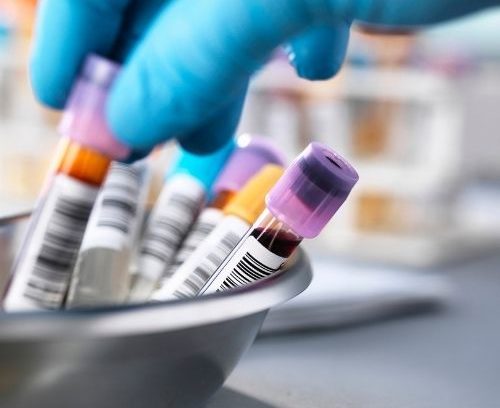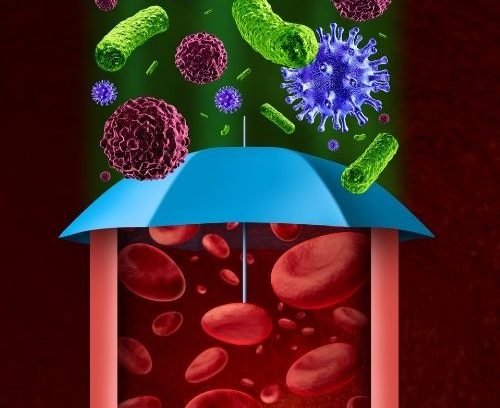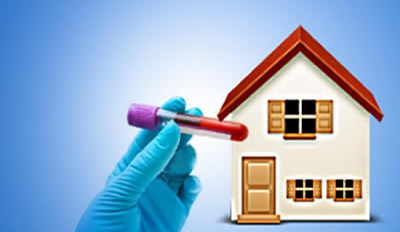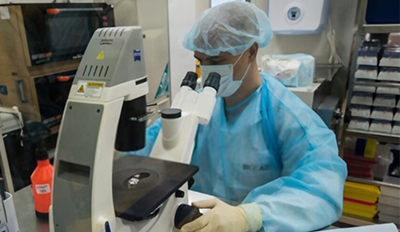 Read More
Read More Trusted by leading doctors and healthcare institutions,
Medilab avail varied tests to help in receiving
precise diagnose and reliable reports
Trusted by leading doctors and healthcare institutions, Medilab avail
varied tests to help in receiving precise diagnose and reliable reports
Proficient Testing and
Diagnostic Solution
Proficient Testing and
Diagnostic Solution
 Read More Book Your Test
Read More Book Your Test Real-time diagnosis for people who are infected
with SARS-CoV- 2 virus and become acquainted with
your past exposure to coronavirus with antibody test
Human Metapneumovirus (HMPV) is a common respiratory infection affecting people of all ages
Covid-19 RT-PCR Test
and Antibody Test
Human Metapneumovirus (HMPV)
Test
 Contact Us
Contact Us Scale up your vision of growth with the emerging
pathology lab, together with quality diagnostic services
and efficient team of professionals.
Scale up your vision of growth with the emerging pathology lab,
together with quality diagnostic services and efficient team of professionals.
Expand your Business
with Franchising
Expand your Business
with Franchising

Welcome To Medilab Diagnostics
Networked. Bidirectional.
Medilab Diagnostic Centre is state of art laboratory with highly skilled staff having its main central processing lab in south Mumbai. Setting up a best quality pathology laboratory in Mumbai was the dream of Sanjay Upadhyay our founder, a biomedical engineer specialized in Nuclear Medicine who had a professionally rewarding stint in Mumbai. It was a dream and vision to provide pathological services at affordable prices and with the highest quality. Our founders have vast experience in the medical field and has specialized in technology application in pathology testing and process.
Diagnostic Services
Our wide range of diagnostics services allows you to monitor your health status throughout the course of diseases. Whether you are admitted in hospital or staying at home, these tests help you to determine at an early stage about your illness and effective measures in eradicating such disease.
As 70% of medical decisions in clinical practice are based on diagnostics, at Medilab Diagnostic Centre, our offerings include a comprehensive range of pathology, molecular biology, health check-ups and a host of other value-added services. They are available in Mumbai Central, Sewree and Turbhe the rest of Maharashtra.
Departments

Molecular Department
The Molecular diagnostic lab is a state of the art facility which is dedicated to…
Detail
Clinical Pathology
Code Description MRP URELE URINE ELECTROLYTES 1155 UROG URINOGRAM 165 UALB URINARY MICROALBUMIN 575 COVID-19…
Detail
Haematology
Code Description MRP H6 HEMOGRAM – 6 PART (DIFF) 190 ESR ERYTHROCYTE SEDIMENTATION RATE (ESR)…
Detail
Immunology
Code Description MRP IRON IRON 420 TSH THYROID STIMULATING HORMONE (TSH) 275 T4 TOTAL THYROXINE…
Detail
Biochemestry
Code Description MRP FBS FASTING BLOOD SUGAR 50 PPBS POSTPRANDIAL BLOOD SUGAR 50 RBS RANDOM…
DetailHome Collection

Dedicated to Provide Home Collection Service
Incorporated with latest technology and equipment to take personalized care of our every patient
Price & Plan
Looking for Pathology & Covid test ICMR approved laboratory near you..?
Diagnostic center near you with standard quality control, technology, equipment and Home Collection Facility
Led by Passionate Experts
Empowering the inner health wellness of our clients by accurately monitoring and maintaining their well-being – our accomplishment in every space led Medilab in becoming a leading diagnostic center with best packages and highly skilled team.

Collection Centers

Permanent Staff

Years of Experience

Popular Test
Frequently Asked Questions
What are the different tests performed here?
- Covid-19 RT-PCR Test
- Blood Test
- Cancer Antigen
- Covid Antibody Test
- Allergy Test
- Cholestrol
- Immunoglobulin
- Lipid Profile Test
When can we expect the reports?
There are certain tests that take several days and weeks, rather most tests are completed and reported on the same day within few hours.
How much do these tests cost?
Depending upon the type of package you decide to take as there are wide varieties of test conducted in the pathology lab and due to the quality of service prices maybe higher for certain tests.






